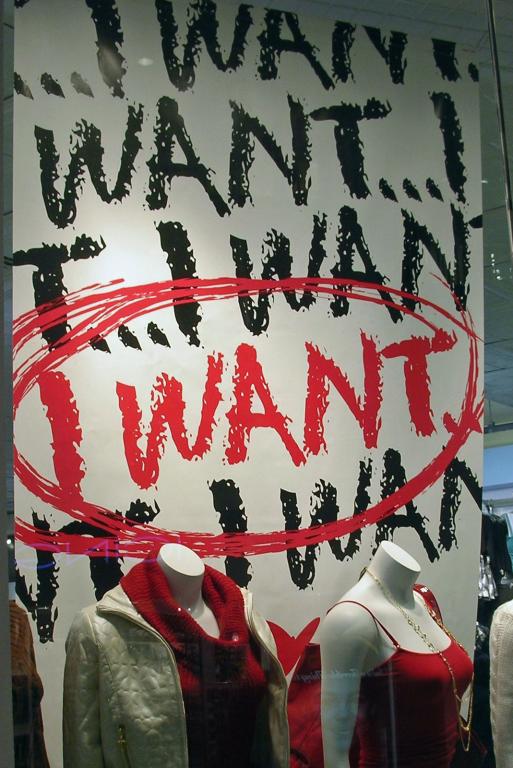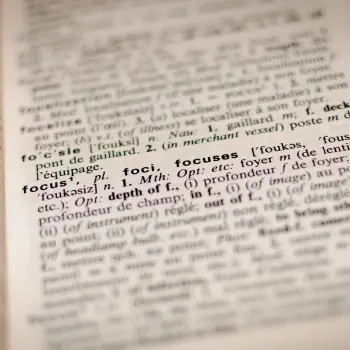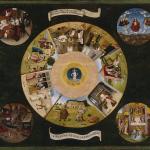Syncretism is easy to see in other people. It’s nearly impossible to see in ourselves. No wonder we tend to think everyone else is consumeristic, but not us.
Two Blinders to Consumerism
There are at least two ways we fortify ourselves from introspection and conviction.
-
We pontificate about “the culture”
It’s commonplace to hear Christians complain about “the culture.” Believers speak about it as though they weren’t a part of the culture, as if they were not products and contributors to it. Consequently, consumerism is something out there that inflicts those other people.
-
We immune ourselves with qualifications.
We defend ourselves against charges of consumerism by throwing down this or that qualification. Here are a few examples.
First, someone will defend particular purchases by saying God doesn’t want us abjectly poor. We complain that we shouldn’t be so extreme to live an ascetic lifestyle. Doesn’t God want us to enjoy ourselves? In effect, the point that God doesn’t call everyone to forsake all their possessions is used to give us a license to buy whatever we like.
Second, we move the line that defines who is or is not “consumeristic.” As we gain more wealth and privilege, the criterion for identifying consumerism also shifts. Buying Starbucks coffee every day is deemed a simple pleasure, but my friend’s big-screen television is excessive.
These qualifications work well to protect our consciences from conviction.
Common Consumerism
We are prone to think of consumerism in its extreme forms. As with any -ism, we want to identify patterns of thinking and behaving. Rather than define “consumerism,” let’s describe it. Let’s find a cluster of characteristics that mark consumeristic behaviors. This approach avoids the endless cycle of debate that occurs whenever we try to nail down a “definition.”

Let’s begin with some personal reflection. Feel free to use these in small group discussions.
If you we prohibited from spending money on anything except essentials like food and housing, how would your Christmas look different?
You can think of similar questions. The real question we’re trying to answer is this: “What does consumerism look like in ordinary people?”
The following question is definitely worth reflecting on in prayer. What actions would you nominate as potential consumeristic behaviors? These actions might or might not be consumeristic. In fact, an action could be consumeristic for one person but not consumeristic for another person.
Characteristics of a Consumeristic Life
I’ll highlight a few features that mark a consumeristic mindset and lifestyle. Obviously, these points can apply to individual behaviors as well.
First, we ask, “What desires drive consumerism?” I suggest at least three things.
- Status
- Ease or Comfort
- Self-Expression
As Rodney Clapp explains, consumerism is about the “deification of dissatisfaction.” In his article, “Why the Devil Takes Visa,” says,
we modern consumers are perpetually dissatisfied. Fulfillment and lasting satisfaction are forever just out of reach. And if we cannot escape completely to cyberspace, we reach for and grab again and again the product or commodified experience that provides temporary pleasure.
But consumerism goes deeper than this. It constructs an entire narrative about the world. It makes identity claims about us. In effect, it persuades us to believe “I am what I own.”[1]
Wilkens and Sanford elaborate that consumerism
tells us that all our needs can be satisfied by what we consume. The more we use, the more needs we satisfy. Since the fulfillment of needs is what salvation is about, consumerism is, in reality, a secular religion.” (45)
It trades in idolatry, not by enticing us to worship statues, but rather by making everything center around the image in our mirror.
Additionally, consumerism
It reduces everything—our needs, our understanding of people and relationships, even God—to categories that can be addressed or resolved by the use of wealth. This reduction distorts the true value of everything. The ironic result, then, is that in its quest for power and security, consumerism actually produces impotence and fear. (Hidden Worldviews, 52)
We shouldn’t start by asking whether we’re consumeristic. We should assume we are until proven otherwise.
Instead, we need to consider what we do and how we spend our money to bring a sense of value to our lives. How do we seek to escape the pains of life? What do we believe about the world that drives our purchases?
Wilkens and Sanford are right when they state,
As our acquisitions increase, so does our definition of need. (49)
How do we define “need”? These are the types of questions that get at the heart of consumerism.
[1] Steve Wilkens and Mark Sanford. Hidden Worldviews, 44.


















